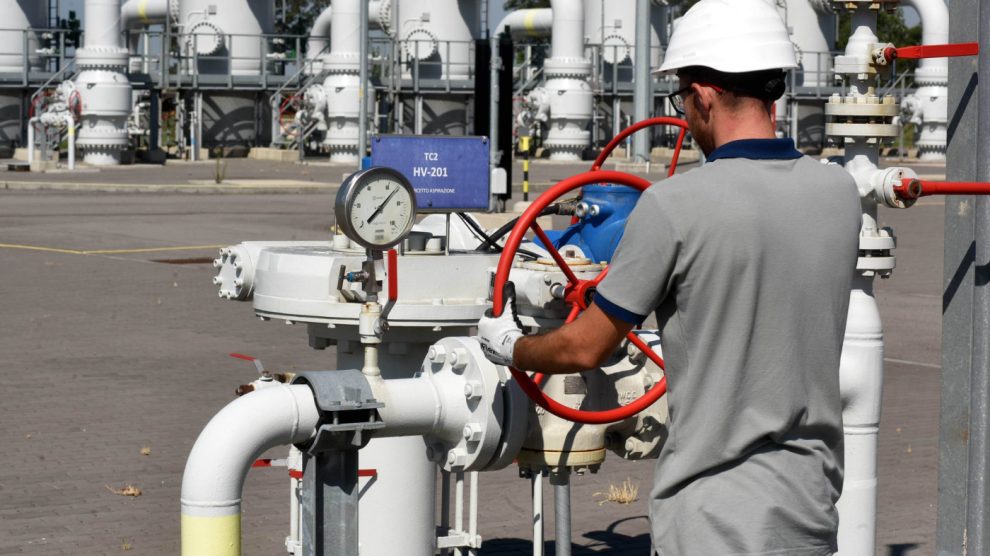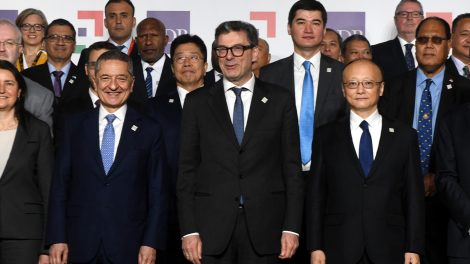Bursting bills and winter worries. As the Kremlin continues to wage economic war on European markets, the gas price – which sets that of electricity – soared to record heights before settling around 310 €/MWh. That’s eleven times last year’s price.
- Markets tensed up ahead of yet another planned maintenance of the Nord Stream 1 pipeline, which makes landfall in the most gas-vulnerable State: Germany.
- Russian President Vladimir Putin has repeatedly used this tactic to keep the EU on edge and inflate prices to his advantage, as member States cannot but fill up their reserves ahead of winter.
Better get ready. Other EU countries either prepared or activated their emergency plans. Italy, which is in the throes of an electoral race, has done neither. In fact, given the topic’s political sensitivity, outgoing PM Mario Draghi had said he would leave it up to the next government. However, the emergency in the making forced him and his government to rethink.
- In a speech on Wednesday, the PM gave forward guidance to his successor, warning that the gas price and its spillover effect was “weigh[ing] heavily on families and businesses.”
- Industrial association Confcommercio estimates that as many as 120,000 businesses and 370,000 workplaces are at risk.
- Worried political leaders – namely, Brothers of Italy’s Guido Crosetto and Azione’s Carlo Calenda – have called on parties to set aside the electoral campaign and cooperate with stakeholders to pass timely emergency measures.
Every little helps. Even though Italy has cut its reliance on Russian gas (from 40% to 18%) and can count on diversified suppliers, enough to resist through the winter without even rationing gas, the prices are still proving unbearable. Thus, a reduction in demand is in order.
- Also, given that Italy is filling up its massive reserves, it’s probable it will have to share some of them with states such as Germany to minimise the economic blowback, given how interconnected the industries are.
The national savings plan. The Draghi government is set to anticipate the release of its gas strategy, which is being drawn up by Ecological Transition Minister Roberto Cingolani, early next week. The plan will feature a two-tiered set of measures, to be applied depending on the level of scarcity, bot doesn’t contemplate all-out rationing.
- Level 1: limiting the temperature conditioning in public buildings to a maximum of 19 degrees in winter (plus one hour less of allowed heating) and a minimum of 27 degrees in summer.
- Level 2: extending Level 1 measures to private households.
- Reportedly, the government is also mulling more measures, such as reducing public lighting (to achieve 40% saving) and even limiting business hours (closing shops at 7 PM and clubs at 11 PM) as well as reducing the activity of particularly energy-intensive industries.
Draghi’s EU approach. The Italian PM is the driving force behind the proposal to impose a Europe-wide gas price cap, which – he reiterated – remains the most pressing priority. Nevertheless, the measure is to be discussed at the next EU ministerial meeting in September, and some countries still oppose it.
- Mr Draghi also believes it’s imperative to decouple electricity and gas prices, which have blown out of proportion, so that cheaper, non-gas generated power can produce the economic benefits it’s intended to.
- “If Europe does not understand that it has to change two rules on price caps and decoupling the energy price from the gas price cap, it plays into Russia’s hands,” argued the Minister for Economic Development, Giancarlo Giorgetti, on Thursday. He added that if such rules cannot be changed “because a few countries oppose it, we cannot avoid raising the issue of budgetary slippage.”
- That’s lingo for issuing more debt to borrow more money – a veritable bain for fiscal hawks, given that Italy’s debt stands around 150%.




